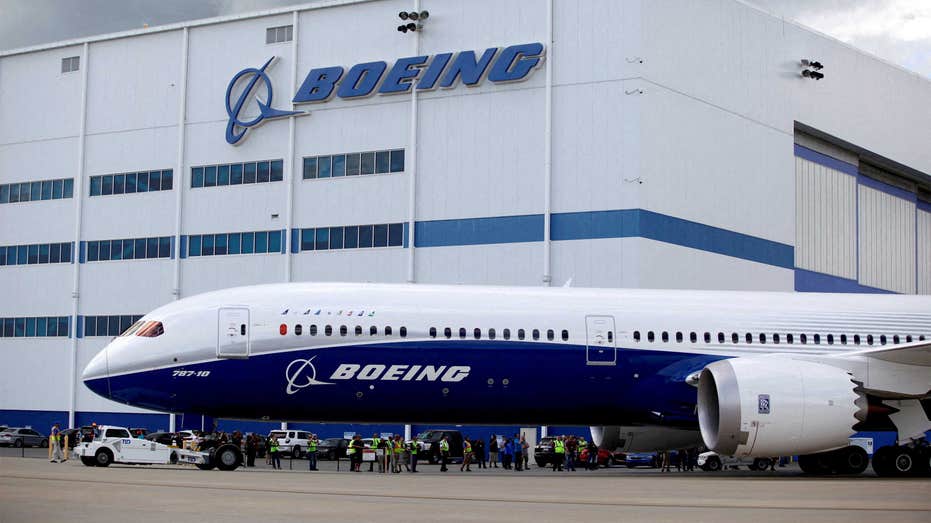Boeing and Northrop join White House-backed program to increase advanced manufacturing
FOX Business Flash top headlines for August 17
Check out what’s clicking on FoxBusiness.com.
Boeing Co and Northrop Grumman are joining a White House-backed compact to help smaller U.S.-based suppliers increase the use of 3D printing and other advanced manufacturing technologies.
The voluntary program, unveiled by President Joe Biden in May, seeks to boost suppliers' use of additive manufacturing (AM).
Driven by 3D printing, the technology allows complex shapes to be built in layers from particles of plastic or metal. The Biden administration views it as an innovation that will enable U.S. manufacturers to flourish and create jobs.
BOEING CUTS LONG-RANGE INDUSTRYWIDE OUTLOOK FOR PLANES
The program, Additive Manufacturing Forward (AM Forward) is organized by non-profit Applied Science & Technology Research Organization of America (ASTRO America).
"The supply chain crisis isn’t just about building out ports. It’s about building up parts – right here in America’s small business factories," said ASTRO America's CEO, Neal Orringer.
Advanced manufacturing, such as 3D printing, can reduce part lead times and materials cost by 90% for airplane manufacturing companies. Pictured: A Boeing 787-10 Dreamliner taxis out front of the Final Assembly Building at Boeing South Carolina in No (REUTERS/Randall Hill / Reuters Photos) GE Aviation, Siemens Energy, Raytheon Technologies, Honeywell and Lockheed Martin were the initial companies to make commitments. The manufacturers say they will purchase additively produced parts from smaller U.S. suppliers; train supplier workers on new additive technologies; provide technical assistance; and engage in standards development and certification. Boeing and Northrop Grumman both aim to increase the number of small- and medium-sized suppliers competing over quote packages for products using additive manufacturing. Boeing will also aim to increase its qualified small and medium supplier capacity by 30% and provide technical guidance to meet qualification requirements. "We know the competitiveness of the U.S. industrial base, including Boeing, relies on the capability of a wide spectrum of suppliers producing and post-processing critical aerospace parts," said Melissa Orme, Boeing's vice president for additive manufacturing. Such technologies can reduce part lead times and materials cost by 90%, and cut energy use in half. WHAT HAPPENED TO BOEING FLIGHT THAT WENT DOWN OVER CHINA? The White House says not enough American companies are using 3D printing or other high-performance advanced manufacturing technologies. A Biden administration official told Reuters the program could expand to the automotive or semiconductor sectors. Source: Read Full Article

